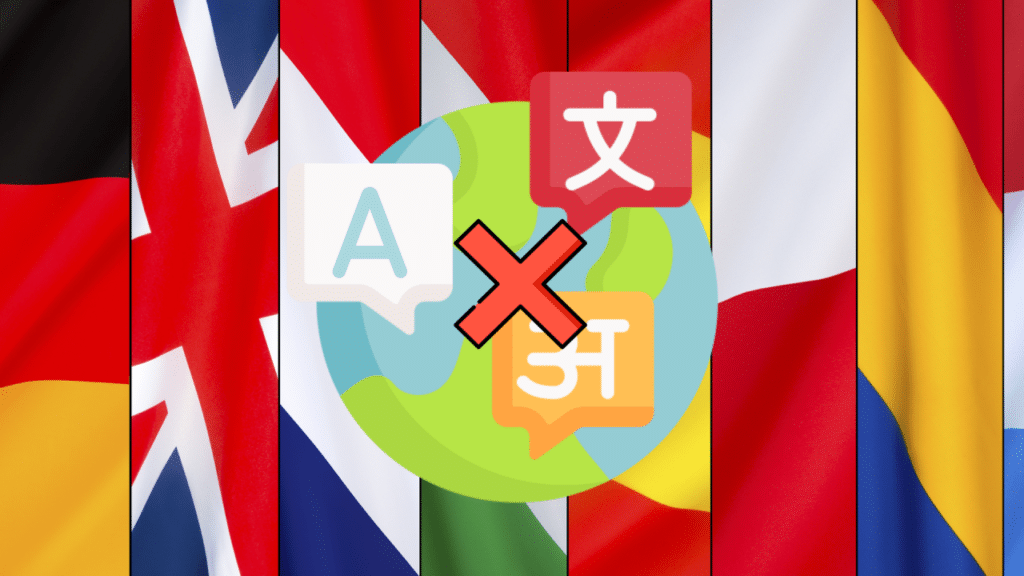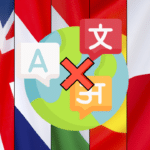
Your Bilingual Colleague Is Not a Translator
In financial translation, expertise transcends mere language fluency. Professional translators not only master linguistic nuances but also grasp complex financial concepts.

In the intricate world of language, certain words uniquely reflect their cultural and linguistic origins, defying direct translation. These untranslatable terms are like secret handshakes of their respective cultures, showcasing the complexities and occasional absurdities of language. They also reveal how our words shape our understanding of the world, particularly in realms like finance, highlighting the nuanced interplay between language, culture, and perception.
The English language is not just a treasure trove of words but also a playground for the whimsical and the peculiar. Take serendipity, for instance. This charming term wraps up the joy of accidental discoveries in a single, melodious word – a concept for which French, despite its own elegance, has no single-word counterpart.
Then there’s gobbledygook, a word as fun to say as it is to ponder. It describes the labyrinthine complexity of language, be it technical jargon or just unnecessarily convoluted prose. It’s a concept that, finds no succinct counterpart in French. As for flabbergasted, this word captures the pinnacle of surprise, the sort of jaw-dropping astonishment that French, for all its shrugs and raised eyebrows, doesn’t encapsulate in a single word.
There is a brilliant TED talk by Lera Boroditsky (pinche aquí) which highlights how languages shape the way we think. In her own words, “Human minds have invented not one cognitive universe, but 7,000 – there are 7,000 languages spoken around the world.” Boroditsky’s research suggests that the structure and vocabulary of our native language can significantly shape our understanding of concepts like time, space, and causality.
This influence shapes how we perceive and engage with the world. Consider how English and French articulate financial concepts; these nuances influence how speakers of each language approach fiscal planning and decision-making. The English language tends to frame these concepts with a certain straightforwardness, whereas French brings a different, perhaps more nuanced perspective. This divergence highlights the significant impact of linguistic structure on our cognitive processes and worldview. Interestingly, the term ‘worldview’ itself is a loan from German – ‘Weltanschauung’, illustrating how languages can borrow and adapt concepts to enrich their own lexicon.
In finance, language sometimes struggles to keep up, especially when translating between English and French. Take Equity, for example. In English, it’s a straightforward concept of company ownership value. In French finance, however, it adopts a more nuanced flair, reflecting a unique approach to equity.
Discussing hedge funds, those financial chameleons, poses a similar challenge. In English, they’re straightforward, but finding a seamless translation in French can be a linguistic puzzle.
Earmark, used for funnelling funds into designated areas, also finds no direct French equivalent, illustrating the complexities of financial terminology across languages.
But this isn’t a one-way street! The French language boasts its own financial vernacular gems, leaving their English counterparts a bit in the dust.
Take, for instance, Effet de levier– a term that refers to leveraging in finance. While the English ‘leverage’ gets the job done, the French phrase brings with it nuances of strategy and risk that are uniquely Gallic.
Then there’s Titrisation, the process of turning assets into marketable securities. Known as ‘securitisation’ in English, the French term often encompasses broader implications and a certain finesse in financial manoeuvring.
And let’s not overlook Décote, referring to the discount on bonds traded below par value. The English term ‘discount’ might seem straightforward, but ‘décote’ carries with it a depth of market savvy and valuation subtleties that English can only aspire to match.
As we’ve journeyed through the landscape of words without direct equivalents, let’s take a moment to appreciate some more ‘untranslatables’ from other languages.
From French to English:
From Spanish to English:
From Italian to English:

In financial translation, expertise transcends mere language fluency. Professional translators not only master linguistic nuances but also grasp complex financial concepts.

A unique challenge: working with a client-provided Translation Memory (TM) that was a conglomerate of inputs from various sources

Untranslatable: English and French Nuance in Finance

Pilcrow has translated Société Générale’s URD since 2016 on-site.
Request a meeting
Trabaje con nosotros
[email protected]
(+44) 01 227 780 244

Subscribe to receive tips and news on managing your content for translation